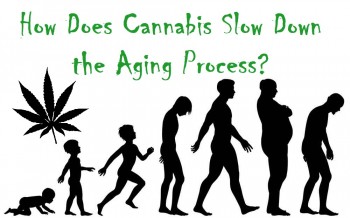
The conversation surrounding medical cannabis has gained significant momentum in recent years, especially as more jurisdictions legalize its use for therapeutic purposes. A recent study has added a compelling dimension to this dialogue, revealing that patients who utilize medical cannabis are less likely to experience suicidal thoughts. This finding is particularly pertinent given the rising rates of mental health issues and suicidality across various demographics. This article will explore the study's methodology, findings, implications for mental health treatment, and the broader context of cannabis use in psychiatric care.
Overview of the Study
Research Design
The study was conducted by a team of researchers interested in understanding the mental health outcomes associated with medical cannabis use. They focused on a cohort of patients who had been prescribed cannabis-based medicinal products (CBMPs) for various medical conditions, including chronic pain, anxiety disorders, and post-traumatic stress disorder (PTSD). The researchers employed a longitudinal design, allowing them to track changes in mental health status over time.
Participants
The study involved a diverse group of participants, including adults from various age groups, genders, and backgrounds. All participants had a documented history of mental health issues and were seeking alternative treatments due to inadequate responses to conventional therapies. The sample size included 500 patients who provided informed consent to participate in the research.
Data Collection
Data were collected through self-reported questionnaires administered at multiple points: before starting medical cannabis treatment and at regular intervals thereafter (e.g., one month, three months, and six months post-initiation). The questionnaires assessed various aspects of mental health, including:
-
Suicidal Ideation: Participants rated the frequency and intensity of any suicidal thoughts they experienced.
-
Depression and Anxiety Symptoms: Standardized scales were used to measure levels of depression and anxiety.
-
Quality of Life: Participants reported on their overall quality of life and well-being.
Reduction in Suicidal Thoughts
One of the most significant findings from the study was that patients who began using medical cannabis reported a marked reduction in suicidal ideation. Specifically:
-
Pre-Treatment Levels: Before starting treatment, approximately 40% of participants reported experiencing suicidal thoughts at least once in the previous month.
-
Post-Treatment Outcomes: Within three months of initiating cannabis treatment, this figure dropped to around 10%. By six months, only about 5% reported ongoing suicidal thoughts.
This substantial decline suggests that medical cannabis may have a protective effect against suicidality for certain patients.
Improvement in Mental Health Symptoms
In addition to reduced suicidal thoughts, many participants reported improvements in other mental health symptoms:
-
Anxiety Reduction: Around 70% of participants noted decreased anxiety levels after starting medical cannabis treatment.
-
Depression Alleviation: Approximately 65% reported an improvement in depressive symptoms. These findings align with previous research suggesting that cannabinoids may help alleviate symptoms associated with mood disorders.
Demographic Insights
The study also explored how demographic factors influenced outcomes:
-
Age Variations: Younger adults (ages 18-30) showed more significant reductions in suicidal ideation compared to older adults. This may suggest that younger individuals are more responsive to the therapeutic effects of cannabis.
-
Gender Differences: Female participants reported higher initial levels of suicidal thoughts but experienced similar reductions as their male counterparts following treatment.
Contextualizing the Findings
The Debate on Cannabis and Mental Health
The relationship between cannabis use and mental health has been complex and often contentious. Historically, many studies have highlighted potential risks associated with recreational cannabis use, including increased rates of anxiety, depression, and psychosis. However, this new research emphasizes the potential benefits of medicinal cannabis for patients with severe mental health issues.
Recreational vs. Medicinal Use
It is essential to differentiate between recreational and medicinal cannabis use:
-
Recreational Use Risks: Research has indicated that recreational users may be at higher risk for developing mental health issues. For instance, a study published in *JAMA Psychiatry* found that frequent recreational cannabis users were more likely to report suicidal thoughts compared to non-users.
-
Medicinal Use Benefits: In contrast, medicinal cannabis is often prescribed specifically for its therapeutic properties. The cannabinoids found in medical products—such as THC (tetrahydrocannabinol) and CBD (cannabidiol)—have been shown to have anxiolytic (anxiety-reducing), antidepressant, and neuroprotective effects.
Mechanisms Behind the Effects
While this study provides compelling evidence regarding the benefits of medical cannabis for reducing suicidal thoughts, it also raises questions about the underlying mechanisms at play:
-
Endocannabinoid System: The endocannabinoid system (ECS) plays a crucial role in regulating mood, stress responses, and emotional processing. Cannabinoids interact with ECS receptors (CB1 and CB2), potentially modulating neurotransmitter release related to mood regulation.
-
Anxiolytic Properties: Cannabinoids like CBD have been shown to reduce anxiety by influencing serotonin receptors in the brain. This could explain why patients experience lower levels of anxiety—and subsequently reduced suicidal thoughts—when using medical cannabis.
-
Pain Management: Chronic pain is often linked with depression and suicidal ideation. By alleviating pain symptoms through medical cannabis use, patients may experience an overall improvement in their quality of life and mental health status.
Implications for Treatment
The findings from this study have several important implications for clinical practice regarding mental health treatment:
Integrating Medical Cannabis into Treatment Plans
Given the promising results regarding reduced suicidality among patients using medical cannabis:
-
Consideration for Patients with Severe Mental Health Issues: Healthcare providers may want to consider integrating medical cannabis into treatment plans for patients struggling with severe mental health conditions—especially those exhibiting suicidal ideation or chronic pain.
-
Personalized Treatment Approaches: As with any treatment modality, it is crucial for healthcare providers to tailor approaches based on individual patient needs. Medical history, current medications, and personal preferences should all be considered when recommending cannabis as a treatment option.
Need for Further Research
While these findings are encouraging, they also underscore the necessity for further research:
-
Long-Term Studies: More extensive longitudinal studies are needed to assess the long-term effects of medical cannabis on mental health outcomes.
-
Diverse Populations: Future research should include diverse populations to understand better how different demographic factors influence outcomes related to medical cannabis use.
Addressing Concerns About Cannabis Use
Despite the positive findings regarding medical cannabis use in reducing suicidality, it is essential to address potential concerns:
-
Risk of Misuse or Dependency
While medicinal use can offer benefits, there is still a risk associated with misuse or dependency on cannabis products:
-
Monitoring Patients: Healthcare providers should closely monitor patients using medical cannabis for signs of misuse or dependency. Regular check-ins can help identify any emerging issues early on.
-
Education on Responsible Use: Educating patients about responsible use practices can mitigate risks associated with misuse. Patients should be informed about dosage guidelines and potential side effects.
Stigma Surrounding Cannabis Use
Despite growing acceptance of medical cannabis, stigma remains a barrier for many individuals seeking treatment:
-
Concealment of Use: Many patients feel compelled to hide their cannabis use due to fear of judgment, leading to a lack of open dialogue with healthcare providers, which can hinder effective treatment.
-
Misconceptions and Misinformation: Stigma is often fueled by misconceptions about cannabis, including its association with addiction and recreational use, which can deter patients from seeking necessary medical care.
-
mpact on Mental Health: The stigma associated with cannabis use can contribute to negative mental health outcomes, such as anxiety and depression, as individuals grapple with societal perceptions and internalized shame.
Healthcare providers should foster open conversations about medical cannabis with their patients. Addressing concerns directly can help reduce stigma and encourage individuals to seek appropriate care.
Conclusion
A recent study indicates that patients using medical cannabis experience a significant reduction in suicidal thoughts, underscoring its potential therapeutic benefits amid rising mental health issues. Understanding alternative treatment options is increasingly vital, and while further research is needed to explore the mechanisms and long-term effects, this study supports considering medical cannabis as a viable treatment for severe mental health conditions. By fostering open communication about treatment options and promoting responsible use practices, healthcare providers can better support patients. As societal attitudes toward cannabis evolve alongside scientific understanding, prioritizing comprehensive care for those facing mental health challenges is essential, recognizing medical cannabis's potential to alleviate suffering and improve well-being.






